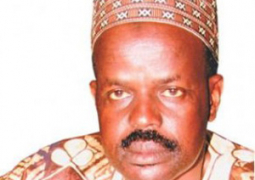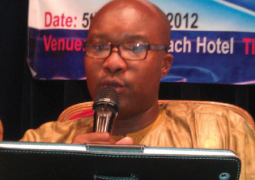WHO, in collaboration with Centre for Research and Training in Mental Health Neuroscience and Drug and Alcohol Abuse College of Medicine, recently launched the Mental Health Leadership and Advocacy Programme (MHLAP) and the stakeholders’ Mental Health Council.
The theme of the launching was “No Health without Mental Health’ and was held at the American International University on Kairaba Avenue.
Speaking at the ceremony, Makki Taal, permanent secretary, Ministry of Health and Social Welfare, congratulated the mental health leadership and advocacy program for championing the mental health advocacy efforts in The Gambia and other English speaking West African countries.
“Some communities in The Gambia are faced with numerous mental, neurological, and psychosocial disorders that undermine development,” he said.
According to him, based on prevalence rates from the mental health survey, it is estimated that approximately 27,000 people in The Gambia or 3% of the population aged 15 and more are suffering from a severe mental disorder.
A further 91,000 or 10% of the population aged 15 years and more are suffering from moderate to mild mental disorder.
This, he said, means that at least 118,000 people in The Gambia or 13% of adult population are likely to be affected by mental disorder which required varying degrees of treatment and care.
“The Gambia has a long way to go in achieving a national coverage of mental health services. Mental health has been a central pillar in our current national health plan and we have now established a Directorate of Heath Promotion and Education in which mental health unit is a component a priority agenda in this directorate,” Taal remarked.
For his part, Denesh Shukla, President of the American International University, said that in most countries mental health is seen as peripheral and isolated issue with more importance being focused on physical well being, which are overwhelming.
He revealed that report published in 2011 where it claims 14% of the global burden of diseases in the world is attributed to mental health which includes broad spectrum diagnosis of common illness such as anxiety, substance abuse to severe illness of psychosis.
“Mental health is highly stigmatised and perceived with fear, avoidance and sometimes anger,” he said.
For his part, Dr Thomas Sukuwa, WHO country representative, said the economic burden due to mental disorders is also huge and must not be overlooked.
“Recent estimates suggest that mental disorders alone are expected to cost nearly one third of the projected US$47 trillion incurred by all non-communicable diseases by 2030,” he said.
According to him, the burden of mental disorders is a complex issue, and goes beyond counting the number of people sick, but touches on our day-to-day experiences with people having these conditions, the pain and suffering incurred by them, their families and society at large as well as the incalculable losses these conditions have to individuals, communities and governments around the world.




